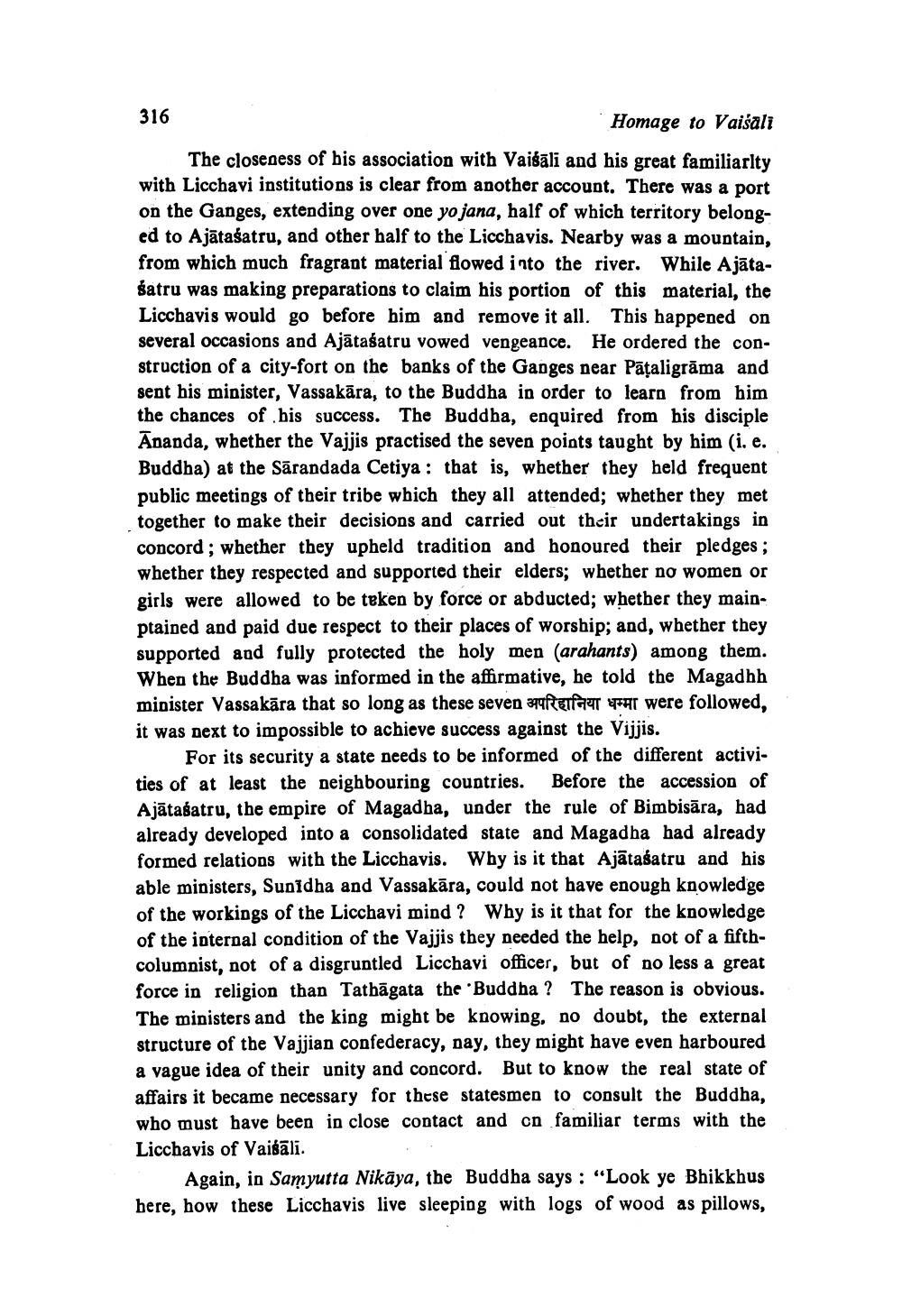________________ 316 * Homage to Vaisali The closeness of his association with Vaigali and his great familiarity with Licchavi institutions is clear from another account. There was a port on the Ganges, extending over one yo jana, half of which territory belonged to Ajatasatru, and other half to the Licchavis. Nearby was a mountain, from which much fragrant material flowed into the river. While Ajatasatru was making preparations to claim his portion of this material, the Licchavis would go before him and remove it all. This happened on several occasions and Ajatasatru vowed vengeance. He ordered the construction of a city-fort on the banks of the Ganges near Pataligrama and sent his minister, Vassakara, to the Buddha in order to learn from him the chances of his success. The Buddha, enquired from his disciple Ananda, whether the Vajjis practised the seven points taught by him (i. e. Buddha) at the Sarandada Cetiya : that is, whether they held frequent public meetings of their tribe wbich they all attended; whether they met together to make their decisions and carried out their undertakings in concord; whether they upheld tradition and honoured their pledges; whether they respected and supported their elders; whether no women or girls were allowed to be teken by force or abducted; whether they mainptained and paid due respect to their places of Worship; and, whether they supported and fully protected the holy men (arahants) among them. When the Buddha was informed in the affirmative, he told the Magadbh minister Vassakara that so long as these seven afterfalar yar were followed, it was next to impossible to achieve success against the Vijjis. For its security a state needs to be informed of the different activities of at least the neighbouring countries. Before the accession of Ajatasatru, the empire of Magadha, under the rule of Bimbisara, had already developed into a consolidated state and Magadha had already formed relations with the Licchavis. Why is it that Ajatasatru and his able ministers, Sunidha and Vassakara, could not have enough knowledge of the workings of the Licchavi mind? Why is it that for the knowledge of the internal condition of the Vajjis they needed the help, not of a fifthcolumnist, not of a disgruntled Licchavi officer, but of no less a great force in religion than Tatbagata the Buddha ? The reason is obvious. The ministers and the king might be knowing, no doubt, the external structure of the Vajjian confederacy, nay, they might have even harboured a vague idea of their unity and concord. But to know the real state of affairs it became necessary for these statesmen to consult the Buddha, who must have been in close contact and en familiar terms with the Licchavis of Vaisali. Again, in Samyutta Nikaya, the Buddha says : "Look ye Bhikkhus here, how these Licchavis live sleeping with logs of wood as pillows,




